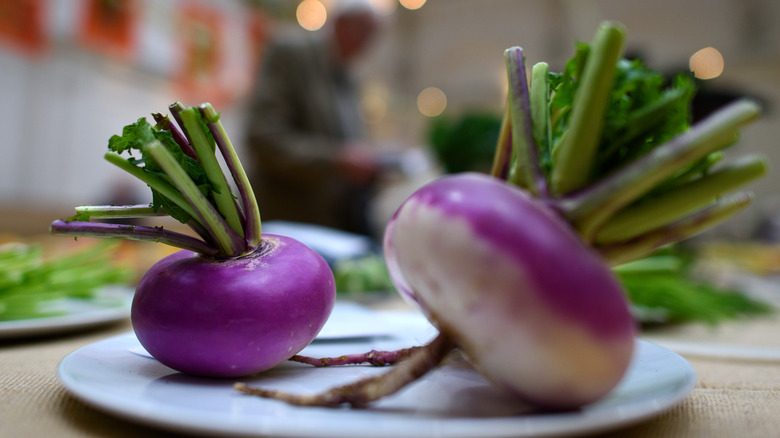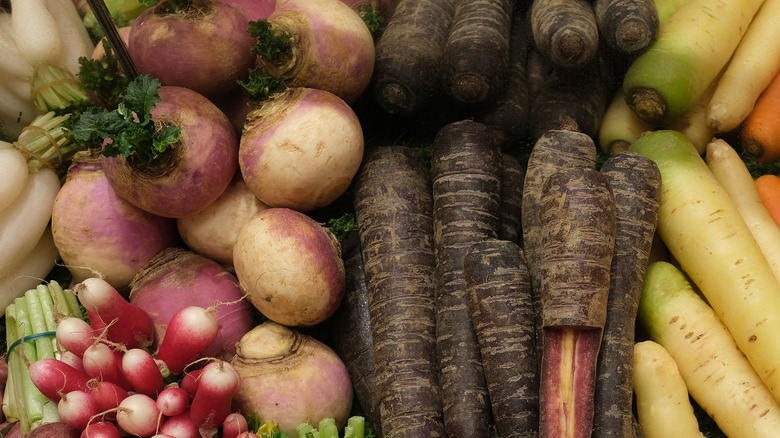The Untold Truth Of Turnips
Turnips are one of the many unsung heroes of the root vegetable world. They're certainly in good company — think rutabagas, celeriac, parsnips, and many others. If you're unfamiliar with the turnip, you probably aren't alone. Turnips lack a certain panache. In the 15th century, "turnip eater" was another term for country bumpkin, reports National Geographic. In the books of Charles Dickens, someone referred to as a turnip was basically less than bright.
Today, of course, we know better than to use a simple vegetable as a term of derision. The fact is, turnips are both tasty and nutritious, without straining your budget. Here's a primer on all things turnip.
Some say that turnips originated in Asia while others suggest that they were first seen in Europe (via FoodPrint). In terms of flavor, Masterclass classifies turnips as "milder than a beet," but at the same time, "heartier and more versatile than a radish." They are root vegetables that are in the 'family' — Brassica — as cauliflower, Brussels sprouts, and broccoli. They can be eaten raw or cooked, and their leaves are also entirely edible. They are in season from October to March. Taste Of Home states that the turnip tastes a bit like a mix of cabbage and radish, whereas its texture is very potato-esque. Once cooked, turnips go from having a slightly sharp bite to being mellow and slightly sweet.
How do you cook turnips?
They are super-versatile, and are super-delicious mashed or pureed. You can also pickle them, treat them like you would a potato, or even slice them thinly and serve them raw in a salad, or into wedges for dipping into a dressing. They are also fantastic simply roasted with some oil, salt, and freshly ground black pepper. Fun fact: according to FoodPrint, some people actually used to carve turnips instead of pumpkins for Jack-o-lanterns.
Turnips have far fewer carbs than potatoes, and are rich in dietary fiber, vitamin C, and even deliver some calcium, according The Spruce Eats. Organic Facts notes that turnips are thought by some to improve bone health, protect the heart, help prevent cancer, reduce inflammation, and optimize digestion. They also regulate metabolism, increase circulation, and boost the immune system. Furthermore, turnip greens are packed with vitamins A, C, K, calcium folic acid, and manganese, according to FoodPrint.
Next time you're looking for a salad ingredient, a roasted veggie side, or a refreshing pickle, look no further than the humble turnip. We guarantee you'll be pleasantly surprised.

